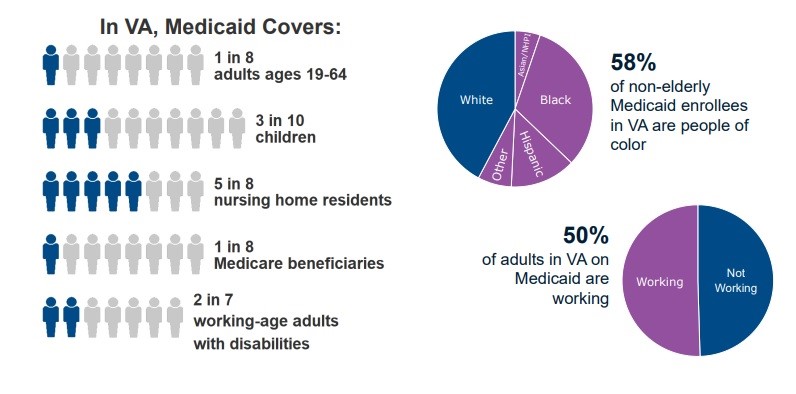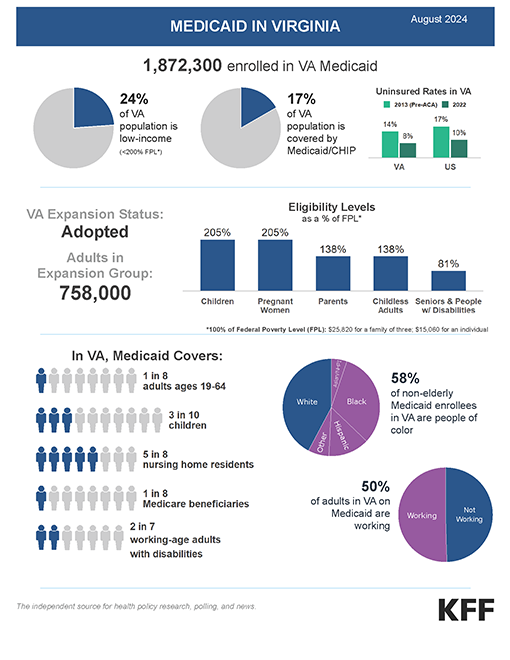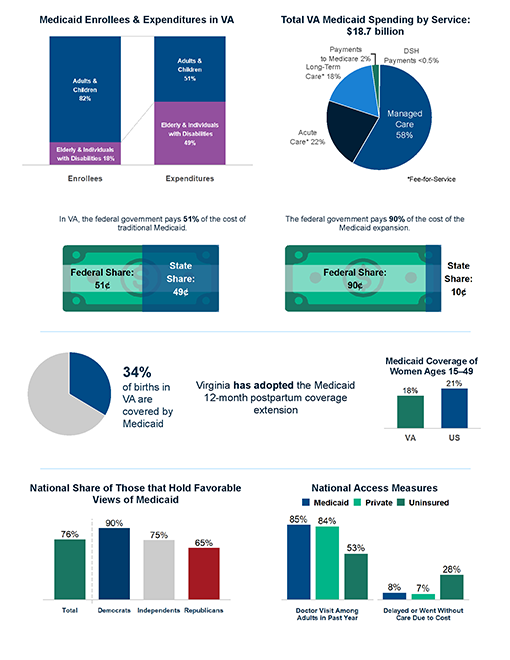Medicaid health insurance covers almost one-third of people with a mental illness, and it could face devastating cuts in the upcoming federal budget reconciliation process. There’s no way around it: reducing Medicaid funding means reducing access to mental health and substance use services for those most in need.
Medicaid provides health coverage to low-income individuals and people with disabilities. It is a lifeline for many people with mental health and substance use conditions and is the largest single payer of mental health care.
National Mental Health America has created a new Medicaid action alert, calling on the Senate to protect Medicaid from these potential cuts in the final reconciliation bill.
Virginia has more than 1.8 million people enrolled in its Medicaid program. That includes five out of eight nursing home residents and three out of 10 children. See the Kaiser Family Foundation data charts for more information:

In 2018 Virginia expanded Medicaid coverage to an additional 630,000 people, with the federal government covering 90% of the costs and Virginia’s acute care hospitals funding the balance. But when Virginia approved the expansion, it decided to include a “trigger” provision so if the federal cost share ever dipped below 90% then the entire expansion could disappear.
Congress needs to hear how important it is to protect life saving healthcare.






